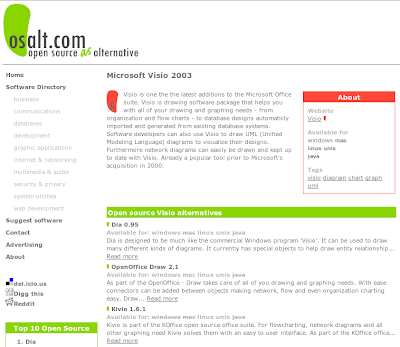Proactively defending the GPL
I keep hearing people talk about the need for a legal test case against the GPL. This has not happened yet in the US, and some people think it is necessary to legally legitimize the GPL license. These GPL-supporters hoped that the recent Busybox vs Monsoon Multimedia issue would satisfy this requirement. This turned out not to be the test case because it settled outside of court.
After hearing much debate and concern about how and when this all-important test case will take place, a very simple idea entered my mind. Why don't we just create this test case ourselves? Start with two pro-GPL parties, and have one party infringe against the GPL license. Then have the other party sue the first for its violation of the GPL license. Of course the specifics can be determined in advance to make the decision most favorable to defending the GPL. I expect that the legal costs for this case will be minuscule compared to the value it would bring.
Once the case has been decided in favor of the GPL, it would become the legal test case for GPL. Any future cases against the GPL can refer to the successful defense from this artificially created case. Is this a valid method to get a legal test case in the US? Or is it it a ridiculous idea that needs no further thought?
After hearing much debate and concern about how and when this all-important test case will take place, a very simple idea entered my mind. Why don't we just create this test case ourselves? Start with two pro-GPL parties, and have one party infringe against the GPL license. Then have the other party sue the first for its violation of the GPL license. Of course the specifics can be determined in advance to make the decision most favorable to defending the GPL. I expect that the legal costs for this case will be minuscule compared to the value it would bring.
Once the case has been decided in favor of the GPL, it would become the legal test case for GPL. Any future cases against the GPL can refer to the successful defense from this artificially created case. Is this a valid method to get a legal test case in the US? Or is it it a ridiculous idea that needs no further thought?


Because it's illegal. And morally wrong. Justice works when two people present their best possible case on a subject.
ReplyDeleteIf both parties agree that the GPL is valid, then the GPL is not a challenged claim, and won't be court tested. If you take it one step further, and have one party put up a sham defense against the GPL, then you have no true incentive to defend it correctly.
This is bad because much of jurisprudence relies on precedent ("common law"). Bad rulings and defenses may be overturned, but you're trying to game the system.
I think it's better to point out that after 20 some years of existence, the lack of disputes settled in court surrounding the GPL suggests it is unlikely to be found against in court.
I believe there was a similar thing done as part of the abolitionist movement. A slave's right to freedom was fought over in court, despite the ultimate 'owner' being an abolitionist, and he would have been freed regardless.
ReplyDeleteJustin said exactly what I was going to say. Probably a good way to get yourself prosecuted for something along the lines of contempt of court though.
ReplyDeleteThat would be pointless.
ReplyDeleteThe purpose of having a GPL test case in court would be to set a precendent. Thus if the GPL was challenged again people can rely on a court upholding it. If you game the system like this then future court cases cannot rely on this because it is not a true and fair court decision.
I don't think you could do that, at least not in federal court. The constitution (or at least modern jurisprudence) requires an actual "case in controversy" before a case can be heard in federal court. (Some state courts have a more lenient standard though). This basically just means that it has to be a real fight, with the threat of real losses. It's pretty much designed to avoid test cases and hypothetical questions.
ReplyDelete